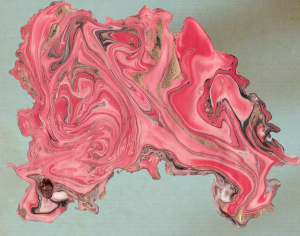Who’s Afraid of Music?
by Albert Genower | February 9, 2024
“Against music – for architecture”, proclaimed Salvador Dalí in his 1942 autobiography, a statement that received frustratingly little elaboration from the surrealist. Dalí was an outspoken and often self-contradictory man, for whom shock was often the desired response to his statements. However, the complex relationship the painter maintained with music throughout his life indicates that this quote may not be mere posturing, but something more profound. Dalí is not the only person of renown who has defined themselves in such a position. Those who are disinterested in music are reasonably hard to come by, and those wholly ideologically opposed to music extraordinarily rare. Nevertheless, from antiquity to today, they do exist.
Though not every language has a word for it, there has never been a society or culture that does not, in some way, possess what can broadly be called ‘music’. It is, therefore, beyond dispute that music plays an integral role in the human experience, however unexplainable that role ultimately is. It’s hardly a surprise, therefore, that people who possess indifference, antipathy, worry, or even revulsion at music’s presence have been so rare. When I talk about a fear of music here, I’m not referring to melophobia, or an acute sensitivity to frequency or volume. Instead, I refer here to a philosophical opposition of scepticism towards music for artistic reasons.
When these individuals do crop up throughout history, the similarities between their arguments are striking. Ideological criticisms of music fall broadly into two schools of thought: those that dismiss the power of music, and those that are afraid of that power. For some of these curious figures, music is a passionless and ultimately pointless endeavour, conveying none of the artistry of literature nor the sustenance of food and shelter. For others, music is a dangerous tool, an unexplainable yet immensely powerful force that seemingly acts outside all concepts of rationality. I love music, I care about music, I comfortably place music as a—if not the—defining characteristic of my very being. So, to hear these figures, often with towering reputations and bodies of work of their own, to dismiss something that, to me, is the closest thing to magic that humanity has ever experienced, was at once intriguing, mystifying, and slightly terrifying.
Those sceptical of music in antiquity frequently jumped to comparisons with cooking. Philosopher Philodemus argued that music and cooking both provide a necessary but unadmirable pleasure to the senses, but any claims of anything more emotional or profound from music are mistaken. Sextus Empiricus, the 2nd-century sceptic, framed music as something emotionally distracting rather than cathartic, likening its effects to that of wine—a lethargising, stagnating force. For him, there was a gendered aspect to music: melody was “effeminate”; rhythm was “womanish”.
‘Mousike’, the ancient Greek word, possessed broader connotations than just music. It encompassed poetry and lyricism, dance, and music—though Plato was often referring to music more narrowly, akin to how we see it today. In Plato’s ideal city, as described in his Republic, certain musical scales would be banned. He cites, for example, the hedonistic nature of the ancient Lydian and Ionian modes (ancient Greek scales, different to the modern ones of the same name) as being unsuitable for his perfect society. Any kind of musical innovation is singled out by Plato as exceptionally dangerous: “There is no greater evil in a state than a spirit of innovation.”
Some two millennia later, Enlightenment philosopher Immanuel Kant, in his Critique of Judgement, offers up his own ideological criticisms of music, aligning far more with Philodemus and Sextus Empiricus than Plato. In it, he positions music as having the lowest place in the fine arts, owing to the fact it “merely plays with sensations”. Because of this, Kant argues, music can only produce a fleeting impression, compared to the more lasting and profound impact engendered by less abstract arts. Kant likens the presence of music to a strong perfume that “exhales its odours far and wide”, subjecting those around it to an experience they did not consent to, like a kind of artistic tyranny. This discussion of music’s intrusive and penetrating nature is also something that pertains to the next figure of discussion, the great Leo Tolstoy.
Tolstoy enjoyed music. In fact, that statement doesn’t do his love of music justice. Whilst it is somewhat futile to compare emotional depth like it’s something quantifiable, Tolstoy’s connection with music was something that both invigorated and tormented him. As his daughter Alexandra put it, “music penetrated the deepest recesses of his soul.” But despite Tolstoy’s personal enjoyment of music, he retained a more profound philosophical scepticism regarding the art form (especially more modern music).
Tolstoy’s novella The Kreutzer Sonata contains a passage in which the protagonist Pozdnyshev rallies against music. For Pozdnyshev, music caused the experience of emotions that were not truly there, acting in neither “an ennobling nor a debasing way, but in an irritating way”. Whilst it’s precarious ground to put too much stock in the words of one of Tolstoy’s characters, according to his son Sergei this very passage “vividly depicted” the real Tolstoy’s views. Music drugs the listener, compelling them to feel things beyond their control. Pozdynshev (and presumably Tolstoy) concludes that this emotional power “is why music is so dangerous, and sometimes acts so frightfully.”
The music of Tolstoy’s contemporaries drew his ire to the greatest degree—Brahms, Strauss, Wagner, Liszt, and Berlioz were all denounced as “good-for-nothing imitators” by the writer; late-period Beethoven and Scriabin were also the target of his objection. Feeling music was becoming too intellectualised, but simultaneously “amazingly empty and insignificant”, Tolstoy lamented how the language of 19th-century classical music was, in his view, moving away from universality and towards a more insular, individualistic art.
Dalí is difficult to make judgments on—this is a man who rented an anteater to pose as his pet to draw shock and attention from strangers—but it’s clear that his “battle” against music, whilst certainly hyperbolic, was not drawn from nothing. Whilst Dalí did listen to and enjoy some music, at least on some level and privately (his teenage diaries show a particular admiration of Mozart), he was no stranger to railing against music publicly. Dalí boasted of his ‘hatred’ of music almost as a point of pride. His autobiography describes an incident of him crushing a violinist’s instrument with his shoes, calling it “a final, irrefutable proof of the superiority of painting over music”, and saying that the shoe stands opposed to music since it possesses “realistic virtues” that music does not. Whether these stories are true or not (and they’re probably not) is immaterial—this is the perception of himself that Dalí wanted to cast out into the world.
In Dalí’s 1983 painting Bed and Two Bedside Tables Ferociously Attacking a Cello, this superiority Dalí assigned ordinary objects over music is central. As the title suggests, the household objects push up violently against the cello, contorting and obscuring it. Dalí himself described attempts to depict musical objects as “demolished, crushed, soft-cellos of rotten meat”, something that is clear in this painting. It’s even more clear in Masochistic Instruments, which sees a woman pinching a violin, its flaccid body sagging like the “rotten meat” that Dalí described. Why Dalí was so outwardly against music, even if he privately quite liked it, remains somewhat of a mystery, but there are certain indicators pointing as to why. In his autobiography, he describes how different he feels to the rest of artistic society, and that these “unintelligent” people “adored the music that [he] detested”. This might seem to be referring to musical genres, but in conjunction with his other comments, a picture emerges of someone who defines himself as detesting music to position himself as opposed to a social group he felt alienated from. If anything, Dalí’s proclamation “against music” is more a proclamation against lovers of music. I won’t take it too personally, Salvador.
Music is a powerful thing. Though Philodemus, Kant, and Sextus Empiricus (amongst others) see it as possessing no more genuine merit than bread or water, it acts as social glue, cultural touchstone, and prompt to dance. But more than anything, it acts as magic; transforming our emotions in a way that nobody really understands. Opposition to or fear of music has always swung to one of two extremes: a fear of the power it possesses or a wholesale denial of that power. Most people, including myself, won’t really agree with either assessment, though there’s something admirable itself about the conviction those like Tolstoy, Dalí, and Plato have felt.∎
Words by Albert Genower.




